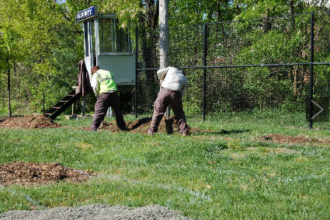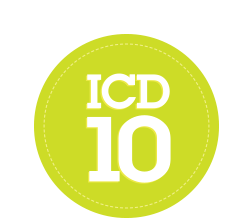My name is Ruth Schorr, and my parents, Andrew and Esther Schorr, are the founders of Patient Power. I have grown up around Patient Power and its amazing team, and I have also grown up with cancer as a prevalent part of my life. Growing up with a parent who has been diagnosed with cancer isn’t easy.
My name is Ruth Schorr, and my parents, Andrew and Esther Schorr, are the founders of Patient Power. I have grown up around Patient Power and its amazing team, and I have also grown up with cancer as a prevalent part of my life. Growing up with a parent who has been diagnosed with cancer isn’t easy. You are affected by the situation directly, although you are not always old enough or emotionally ready to process the situation at hand. In my case, my father was diagnosed with chronic lymphocytic leukemia (CLL) when I was only 4 years old. At that point in time, I didn’t understand much more than the fact that something was wrong and mommy and daddy would be going on trips to the doctor and out of town quite often to try and fix it.
Although my dad was diagnosed while I was 4 years old, he did not begin treatment in a clinical trial at MD Anderson Cancer Center until I was almost 8 years old. In that time, I came to understand what it means to have hope and faith and trust the process. As my mom and dad flew back and forth between Seattle and Houston, my hope only grew stronger. When my dad was put in remission, I felt incredibly relieved. My best friend and hero would be around for a very long time.
Cancer played a very absent role in the middle of my life at home. By the time I was deciding on where I wanted to go to college, my father was feeling healthy and strong. Although the world turned upside down again in the middle of my first year when I received a call from my father that some tests had some back with what seemed to be another type of cancer, myelofibrosis, and he would let me know what would be happening next.
I won’t lie and say that being 3,000 miles away from family at that point in time wasn’t the most terrifying thing in world, but I will say that having been through this before taught me to be as open-minded and as hopeful for answers as possible. Through my college career, my dad was able to see some of the best doctors in the country and luckily is being taken care of in the best way possible. I learned through this process of being away from my family that it truly takes a village to get someone to their best health—whether it was talking with my brothers to give them support, and them to me, or helping out with anything around the house when I was home. Even being far away taught me to play on my father’s team from near or far and helped me understand what facing this illness meant.
If I were to speak to a child whose parents had cancer, I would tell them to not be afraid. Afraid of the illness, afraid of talking about it, afraid of being sad, they are all a part of the process. Take time to reflect on your own, take time to speak to others if you are comfortable, and take the initiative to be involved in the process when you are ready. I know from personal experience, my brothers and I were not all in the same place at the same time with understanding my father’s condition. If you have a sibling, be patient and understanding, everyone processes differently—it took a long time for me to understand and cope with that.
If I were to speak with a parent with cancer, I would tell them that the more involved you can get a child in the process the better. As long as they are old enough to understand at least the process that is happening it is scarier for a child to be completely removed than be a part of it. Whether it’s going to lunch every other week one on one to talk about what’s going on, or inviting them to doctor appointments either for the company or simply just so they can gain understanding, I guarantee they will appreciate it.
I hope to bring a new outlook to Patient Power, one that comes from a point of understanding and hope. Throughout my life, I have not only dealt with my father’s illness but also with my own chronic illness. I believe I have a great grasp on what it is like to be a terrified patient and also a strong supporter to one. I hope to bring insight into how to overcome fear and doubt. I believe that the work that Patient Power does is helping patients and families everywhere and, in turn, helping the world, which is something I believe will be an important part of my legacy.
How did you talk to your parents or your child about cancer? Share your story in the comments section.
Finding my strength through dealing with challenges.
Ruth Schorr







